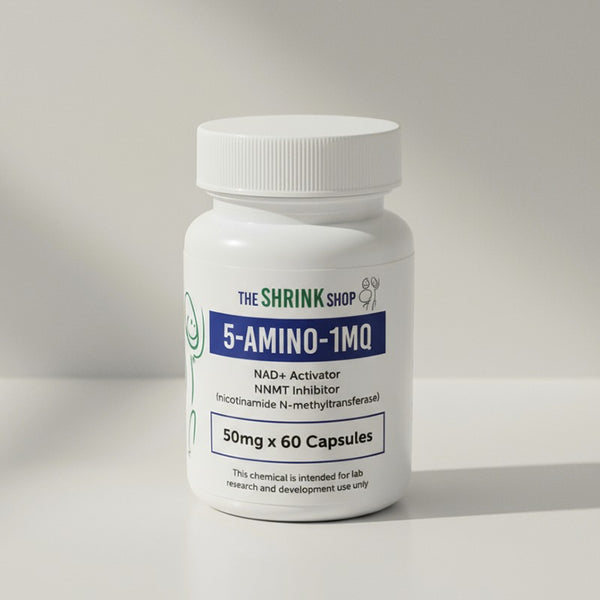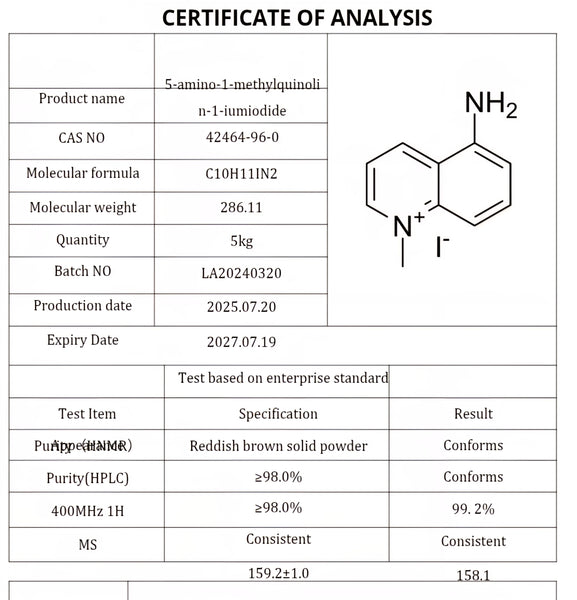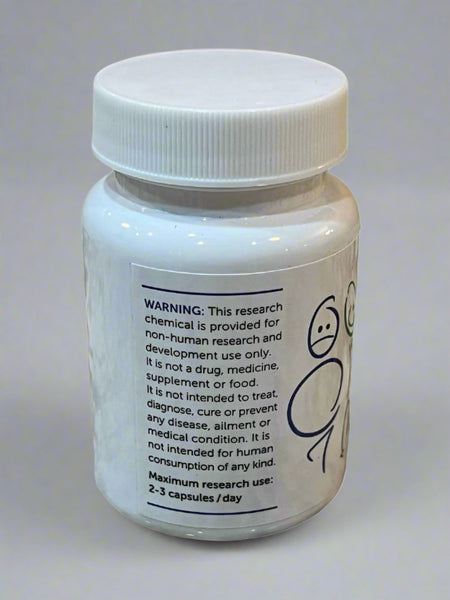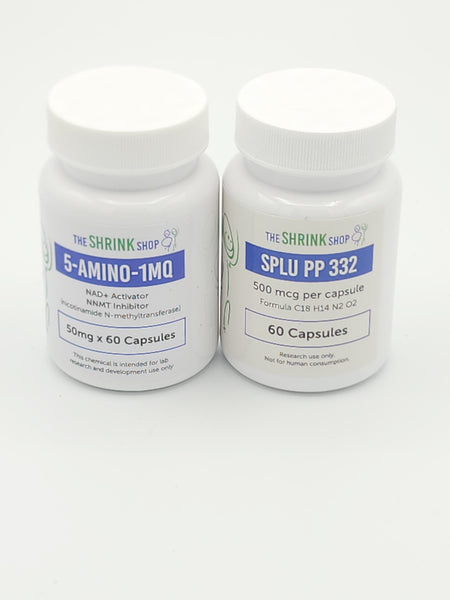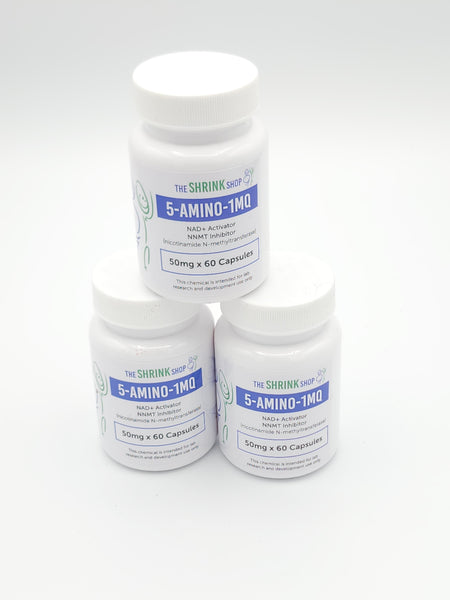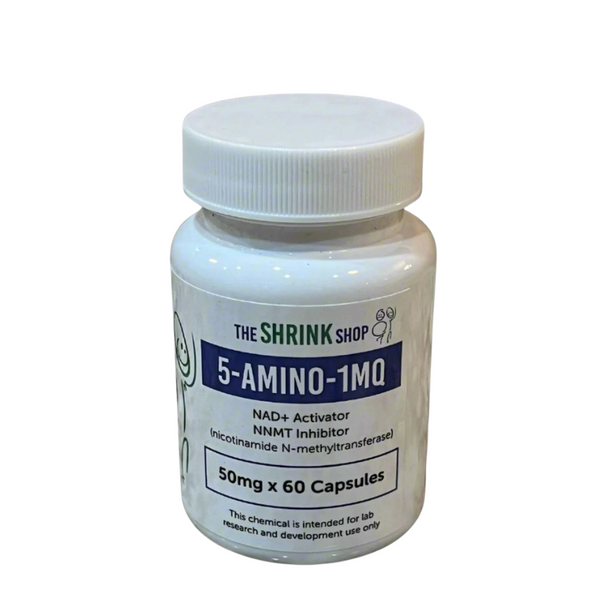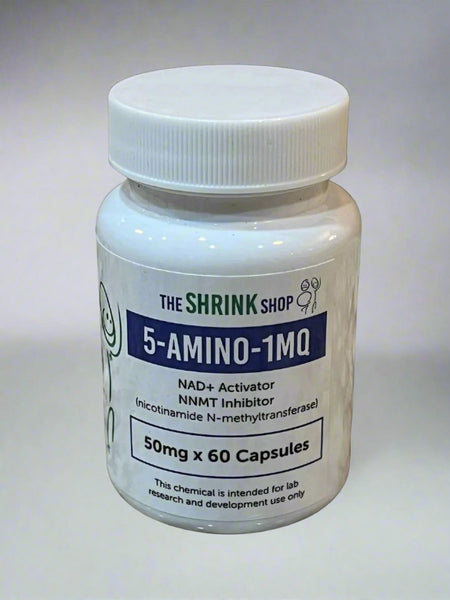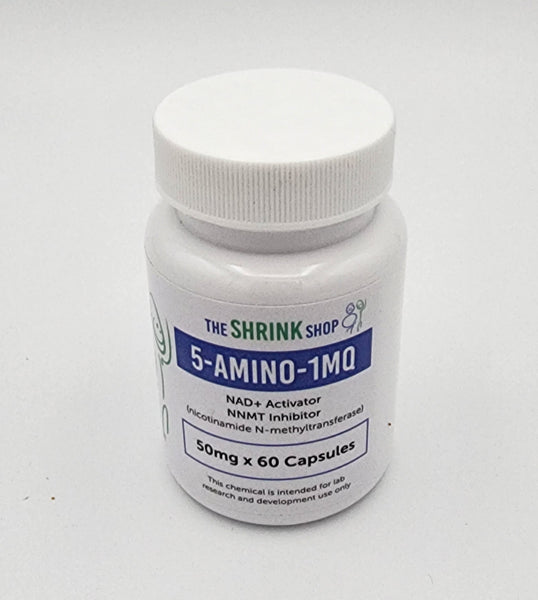5 AMINO 1 MQ
Struggling with stubborn fat, energy dips, or feeling like your metabolism has hit midlife cruise control?
5-Amino-1MQ is a research compound shown to inhibit NNMT (Nicotinamide N-methyltransferase)—an enzyme linked to age-related weight gain, low energy, and muscle loss. By targeting NNMT, this compound helps restore your body’s natural fat-burning potential while preserving hard-earned muscle.
This is not a stimulant—it’s a cellular-level reset designed to support optimal composition, energy, and longevity.
Why Choose 5-Amino-1MQ?
-
Promotes Fat Loss, Even in a Caloric Surplus
Studies show that NNMT inhibition reduces adiposity and shrinks existing fat cells—Reference: Nature Chemical Biology, 2014. -
Preserves Lean Muscle Mass
Maintaining muscle is critical for metabolism, especially during weight loss. Research shows 5-Amino-1MQ may help retain lean tissue during caloric restriction—Reference: Biochemical Pharmacology, 2021. -
Reduces Fat Cell Formation (Lipogenesis)
5-Amino-1MQ inhibits the pathways that create new fat, making it harder for your body to store excess energy as fat—Reference: Pharmacology & Therapeutics, 2020. -
Boosts NAD⁺ Levels for Energy and Longevity
Higher NAD⁺ supports mitochondrial function, insulin sensitivity, and cellular repair—Reference: Cell Metabolism, 2016. -
Non-Stimulant, Non-Appetite-Suppressant
You'll retain your natural hunger cues, allowing for sustainable habit-building, rather than crash dieting or appetite suppression.
Key Benefits
-
Activates fat loss at the cellular level
-
Shrinks existing fat cells
-
Blocks new fat formation
-
Protects muscle mass
-
Boosts NAD⁺ and cellular energy
-
Supports metabolic health and insulin sensitivity
-
Ideal for midlife fat loss and longevity goals
Product Details
-
Ingredients: 5-Amino-1MQ (50mg), Cellulose (vegetable capsule)
-
Capsules per bottle: 60
-
Free from gluten, GMOs, and artificial fillers
-
For research and educational purposes only
FAQs
Q: Is 5-Amino-1MQ like Ozempic or GLP-1 drugs?
A: No. It doesn’t suppress appetite or cause nausea. It works at the enzymatic level, helping you burn fat and preserve muscle without altering your hunger.
Q: Can I take this with other supplements?
A: Yes, it’s commonly used alongside NAD⁺ boosters like NMN or NR, and with resistance training support.
Q: Is it safe?
A: 5-Amino-1MQ is classified as a research compound and is not FDA-approved. Always consult your healthcare provider.
Customer Feedback
"This gave me back my energy. I'm lifting heavier, losing fat, and feel sharper than I have in years." – J.L.
"It feels like I finally found something that works with my body—not against it." – T.H.
5-Amino-1MQ (5-Amino-1-methylquinolinium) is a compound that has attracted significant interest for its potential health benefits, particularly in the areas of metabolism and weight management. The compound functions by inhibiting the enzyme nicotinamide N-methyltransferase (NNMT).
5 AMINO 1 MQ IS A RESEARCH COMPOUND
NOT APPROVED FOR HUMAN CONSUMPTION
For safety reasons
NO REFUNDS ARE GIVEN - no exceptions








